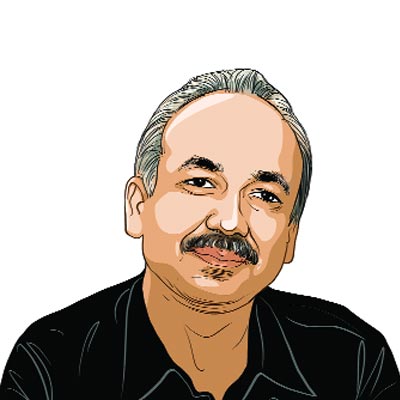Opinion The gathering storm
Nepal is divided all over,with no clear political direction ahead
The Unified Communist Party of Nepal-Maoists (UCPN-M),during its five years in democratic politics,has never been without internal rifts. But they appear orchestrated and tactical mostly,because the partys chairman has been able to use the differences to bargain with other parties. Please understand my problem. If the other groups succeed in ousting me from the party leadership,the peace process will not move forward, is the usual plea from Prachanda,used almost every time the peace process is in crisis.
But for the first time,leaders of the other parties,including the Nepali Congress (NC) and the Communist Party of Nepal-Unified Marxist Leninist (CPN-UML),have sternly refused to take Prachandas statements at face value. Prime Minister Baburam Bhattarai,working with Prachandas full approval,issued a cabinet order to the concerned department a few weeks ago to regularise land and property transactions carried out by the peoples government during the years of conflict. Parliament remains stalled for more than a week with other parties wanting Bhattarai to revoke the order,but he is just as sternly turning the demand down.
Prachanda and Bhattarai used their party and public forum to denounce those opposing this move as anti-people. Bhattarai,who faces a powerful protest by all-party youth and student groups likely to snowball into a nationwide movement,partially rolled back the steep hike in the price of petroleum products. The joint action committee,however,refuses to call off the protest,demanding a total roll-back. Meanwhile,Prachanda is trying to corner other parties support in his favour as Bhattarais replacement.
However,the opposition parties have now lumped all top Maoist leaders together. They have different faces,but the same agenda, says Sher Bahadur Deuba,NC leader and former prime minister,They must first annul the decision on land and property transactions carried out by their party outfit. Prachanda has been reportedly meeting leaders of the NC and the CPN-UML and diplomats including the ambassadors of India,the US and Norway to tell them that he would be the right person to head a government that would deliver the constitution. He even told some diplomats that the decision on property transactions was solely Bhattarais. Despite their internal tussle,opposition parties have now realised that Maoists use that internal rift carefully in the partys interest only.
Things are not rosy any more for the Maoists. Human Rights Watch,in its annual report (2012),has put the blame on the Maoists for having taken the culture of impunity to a new high,and Bhattarais personal initiative to have his party legislator Balkrishna Dhungel a murder accused pardoned has found a special mention in the report. Corruption in public life attaches no stigma any more. Prachanda,who faces accusations from his own party leaders on this count,moved to a huge mansion with sprawling lawns,raising many eyebrows. The government,on complaints of corruption from many donors,dissolved around 4,000 local bodies comprising hand-picked representatives from the four big parties,after it became evident that during the past four years,around Rs 2 billion on an annual average was siphoned off in the name of development. Naturally,the bigger share of the blame falls on the biggest party,the UCPN-M.
All these acts have political implications,especially on the rigid deadline,May 28,for the delivery of the constitution that looks increasingly difficult. The parties attacks on each other have taken a much sharper form. Maoists are out to re-install monarchy. I am suspicious about former king Gyanendras current Delhi visit, said Sujata Koirala,former deputy PM and NC working committee member. Delhi of course,remains an actor,and almost always a suspect,in major political shifts in Nepal.
In the midst of all this confusion,not only the Nepali actors but also the international community as well as the donors are being blamed for the mess in Nepal. The Bar Association has asked judges not to attend NGO programmes. The CPN-UML,the third largest party,has asked its members to opt for either the party or the NGOs. Not only were donors,civil society and the NGOs clearly visible in the political change that took place five years ago,but they are being blamed for double standards on human rights and corruption,keeping silent when the Maoists are at the centre of the storm now.
All this indicates the level of public fury and frustration with the actors,agents and sources of the political changes of 2006 as well as the resultant mess. But it is not clear yet as to the direction Nepals politics will take. However,the season of movements and protests has clearly begun.


